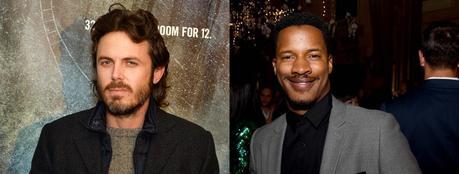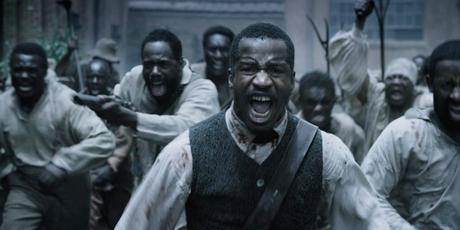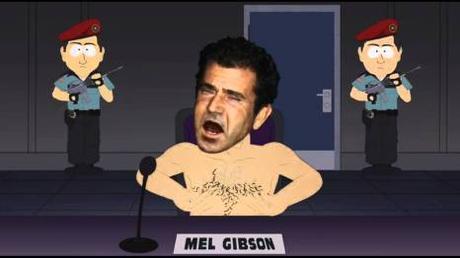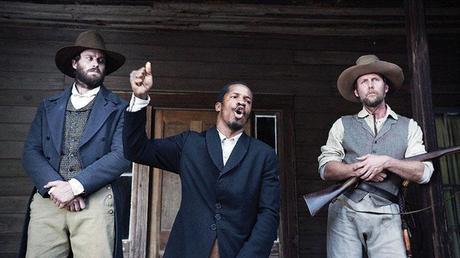
Why do some Hollywood controversies stick while others seem to simply go away? More accurately, why do some white celebrities get away with things while black celebrities do not? Or is it really as simple as that?
That's been the debate raging on in certain corners of the internet for the past week. Casey Affleck's Manchester By the Sea continues to win over awards bodies and audiences despite the star's past history with sexual assault charges while Nate Parker's The Birth of a Nation has been so beaten down by the star's own past with sexual assault that when his film wasn't nominated for a single Golden Globe it didn't even end up on any major "snubs" list in the media. Everyone simply assumed it wouldn't be nominated for anything.
Perhaps that's because Manchester By the Sea is simply the better movie, with a 97% RottenTomatoes score compared to Birth of a Nation's 72%. Sure, when Birth of a Nation premiered at Sundance it was greeted as a surefire Best Picture contender, which is why Fox Searchlight ponied up a record-shattering $17.5 million for the distribution rights. However, the Hollywood unemployment line is perpetually full of those who fail to tell the difference between a film which only plays well at festivals and a film which will actually play well with audiences and critics. Birth of a Nation is certainly not the first Sundance smash to crash with audiences and awards bodies, and crash it did, grossing a mere $15m this October before quickly going away.

But Birth of a Nation is unique. The road from film festival to Oscar may be littered with the corpses of movies which fail to make the cut for a variety of reasons, but few if any in history have been as torpedoed by controversy as Birth of a Nation. In short, in college Parker and his Birth of a Nation screenwriter were accused of rape, but they both essentially got off on technicalities. In no way was this a new story. However, due to Parker's sudden celebrity with Birth of a Nation, which he also directed in addition to co-producing, co-writing and starring in, some in the media brought this story back to the surface. It then took on a life of its own.
It was not to dissimilar to the Bill Cosby case in the sense that this was not actually new information; it was simply new to most people who'd been unfamiliar with Parker leading up to that point. Similar to the Cosby case, this then led to genuinely new information, specifically that the woman who accused Parker of rape never mentally or emotionally recovered and eventually committed suicide. When Parker failed to really apologize in media interviews he enflamed the controversy. The message of his film (a dramatization of Nat Turner's attempted slave revolt in 1830s Virginia) might have been sound, but the messenger was deeply flawed. To the average American Birth of a Nation became little more than that one film by that one guy who raped that girl. Ick, who wants to support that guy, or so you'd think in a world before we elected a pussy-grapping President (but I digress).

By comparison, Casey Affleck was the subject of two sexual harassment lawsuits filed in 2010 by two women who worked with him during the making of I'm Still Here. According to one of the suits, the film's director of photography was made to field "a nearly daily barrage of sexual comments, innuendo and unwelcome advances by crewmembers, within the presence and with the active encouragement of Affleck." As is so often the way, Affleck denied and paid up, settling both suits for a reported $2 million.
If not for sites like Mashable and Constance Wu on Twitter the whole thing would have been forgotten. Mashable asked "Amid the Uproar Over Nate Parker, Why Is No One Talking About Casey Affleck?" in September, and now we are, or at least we're talking about why no one is talking about Casey Affleck. Buzzfeed took a deep, deep dive into the subject, and concluded, "When the press, and audiences, and those with their hands on the levers of Hollywood turn a blind eye to Affleck, it is not just a refusal to question and consider and decry alleged 'locker room' behavior. It's just the latest sign that the kind of behavior Affleck was accused of continues to be normalized."


THR extended the debate to Mel Gibson, questioning why his largely unrepentant racist, homophobic and xenophobic views are now being forgiven just because he happens to have a strong war movie which salutes an uncompromising man of faith. Gibson's Best Director Golden Globe nomination for Hacksaw was supposed to have gone to Parker, or so you would have thought back in January at Sundance.
At least as it pertains to the awards race, quality might be winning out. Like Manchester By the Sea, Hacksaw Ridge and its 87% Rotten Tomatoes score is the superior film to Birth of Nation, for however much weight you actually put into Rotten Tomatoes of course. Moreover, from a simple news perspective Nate Parker's controversy is the more dynamic story than Affleck's or Gibson's. His film dramatizes sexual assault (because slave owners were assholes), and here he stands accused of rape (or at least stood accused in college). He is the creative force behind his film and had planned to embark on a multi-city church tour to spread the news about his film to faith-based communities, preaching much like Nat Turner does in the film. Yet here he is flatly refusing to apologize for a past sin (he maintains the sexual encounter was consensual), laying bare his, as Buzzfeed put it, "lack of intersectionality" and clear "assumption of male privilege."
Affleck just stars in his movie, and its subject matter doesn't really speak to his sexual assault past (i.e., Manchester's IMDB logline reads: "An uncle is forced to take care of his teenage nephew after the boy's father dies"). Gibson simply directed his movie, making it easier to forget about him since he's not on screen. Plus, while I personally read quite a bit into what the film says about Gibson's personal politics and worldview most have simply embraced it as a uniquely powerful salute to valor and faith at a time when war was easily mistaken for hell.
However, there's far more going on here than just awards talk, to which THR adds perhaps Parker was rejected due to his outsider status compared to Affleck and Gibson's respective statuses as longtime Hollywood insiders. There's also the larger discussion about what this says about the media and what stories it chooses to pursue. Why was Nate Parker singled out when Casey Affleck was not? Is there indeed a racial component here, or is it simply that the black man, one who most people had never heard of, happened to be sitting on the more dynamic story than the white one, the guy everyone knows as Ben's little brother and probably remember from several movies, particularly the Oceans trilogy?

In Trump's America, everything now seems deeply political, and for every outraged citizen responding to a racist Kentucky woman raining hate down upon Mexican-Americans at a JC Penny's there are just as many if not more yelling "Sing it sister!" (or some white variation of the phrase) and railing against social justice warriors and liberal elites. As such, while for some this Nate Parker-Casey Affleck controversy might suggest a clear institutional bias to others it might divide along racial lines or simply seem like a complete non-story, particularly since it involves two movies the majority of people will never see and were never going to, controversy or not.
In a sense, we're simply chattering amongst ourselves about this while the rest of the world gears up to go watch a bunch of cute animals do cute things and sing songs like they're real people in DreamWorks Animation's Sing. Perhaps the clearer path forward is not to lament the cruel fate which bested Nate Parker but spared Casey Affleck. Perhaps we should instead be spreading the word about Moonlight, Fences and Hidden Figures, three other primarily African American-led films which are in awards contention and are equally worthy of attention. Even so, the next time we ponder whether to watch Birth of a Nation, Manchester By the Sea or Hacksaw Ridge maybe we can be honest with ourselves about whether race is at all a determining factor in our decision. Maybe it absolutely isn't (Parker's crime seems markedly worse than Affleck's or Gibson's, after all), but if it is maybe reflect on what that means and how the media's coverage might have influenced you. Then go watch a bunch of talking cartoon animals because, frankly, that's clearly what most people truly want from their movies in 2016.

